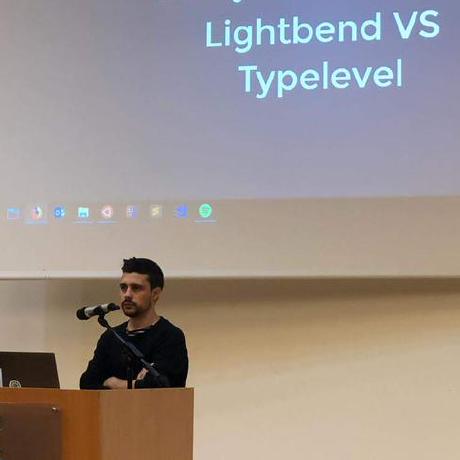ZIO HTTP basic app example
ZIO-HTTP is a new ZIO lib for HTTP applications creation.
It integrates very naturally with ZIO.
Here is a very simple example using ZIO effects and dependency injection with ZLayer :
This file contains bidirectional Unicode text that may be interpreted or compiled differently than what appears below. To review, open the file in an editor that reveals hidden Unicode characters.
Learn more about bidirectional Unicode characters
| import zio._ | |
| import zhttp.http._ | |
| import zhttp.http.HttpError.InternalServerError | |
| import zhttp.service.Server | |
| import zio.clock.Clock | |
| import java.time.DateTimeException | |
| object HelloWorld extends App { | |
| val app = Http.collectM[Request] { | |
| case Method.GET -> Root / "hello" => | |
| HelloWorldService.helloWorld.fold({ | |
| //error case(s) : | |
| case dateTimeError: DateTimeException => | |
| Response.fromHttpError(InternalServerError("Internal error : " + dateTimeError.getMessage)) | |
| }, | |
| // success case : | |
| message => Response.text(message) | |
| ) | |
| // you can add more routes here : | |
| // case Method.GET -> Root / "fruits" => ... | |
| } | |
| override def run(args: List[String]) = { | |
| val serverIO = Server.start(8090, app).provideLayer(Clock.live) // <- bind clock implementation | |
| serverIO.exitCode | |
| } | |
| } | |
| object HelloWorldService { | |
| val clock = ZIO.access[Clock](_.get) // <- dependency injection : can use Clock.live, or a fake clock for tests | |
| def helloWorld: ZIO[Clock, DateTimeException, String] = | |
| for { | |
| c <- clock | |
| time <- c.localDateTime | |
| } yield s"Hello world, the current date is $time" | |
| } |
